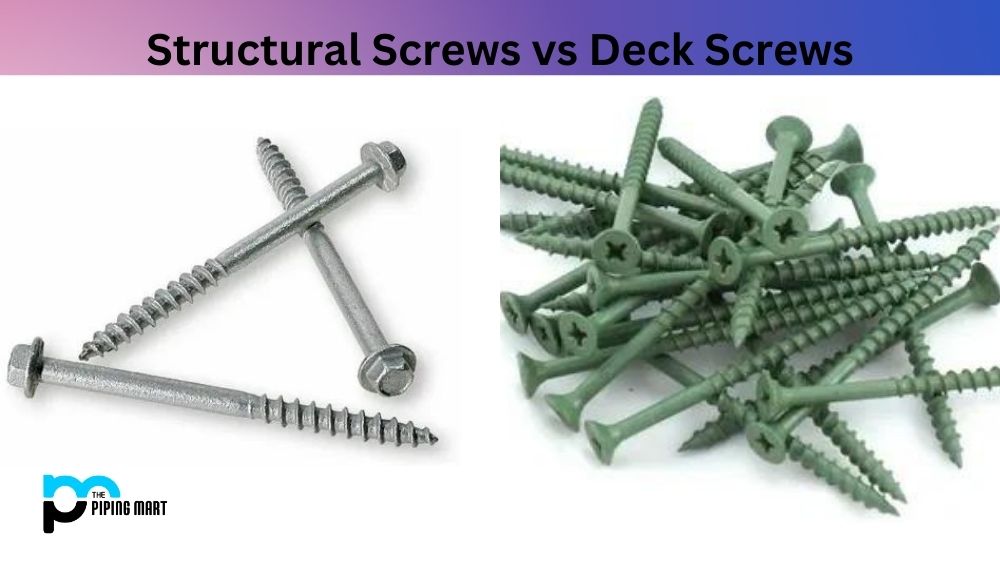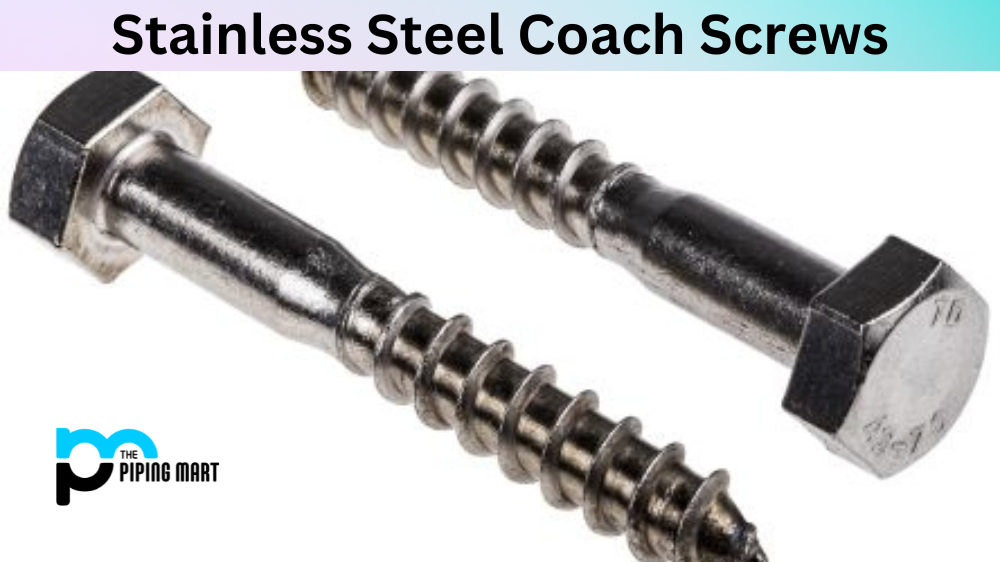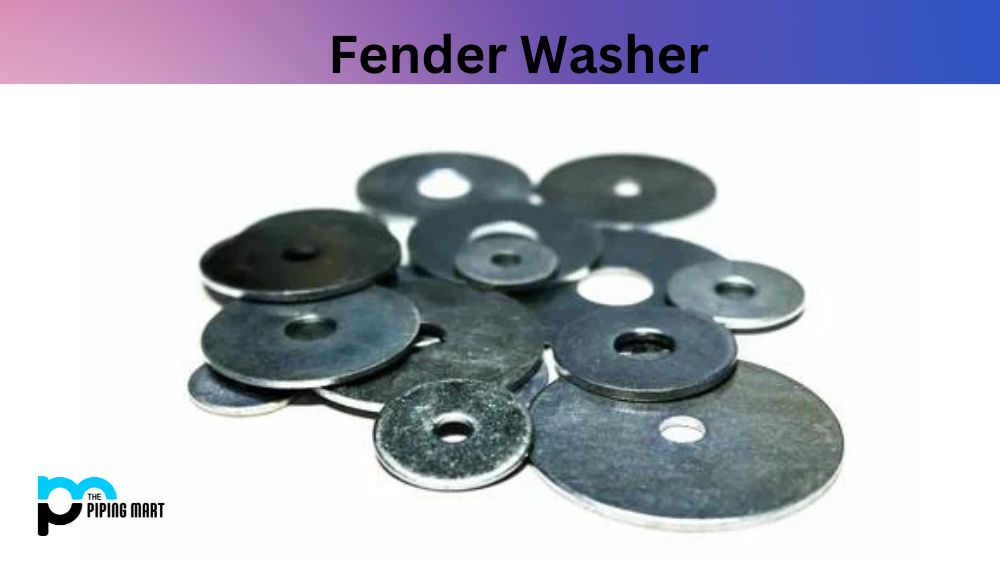When it comes to construction projects, using the right type of screws is crucial. Two commonly used screws in the construction industry are structural screws and deck screws. While they may look similar on the surface, there are some significant differences between them. In this blog post, we will explore the differences between these two types of screws, so you can decide which one to use for your next project.
What is Structural Screws?
Structural Screws are fastening products designed to directly replace lag screws and bolts. They are specifically engineered for structural applications, providing superior strength and pull-out resistance compared to standard drywall screws. Structural Screws feature a reinforced head that prevents the screw from stripping during installation and allows for greater holding power once tightened. Additionally, they offer better corrosion protection and require no pre-drilling or tapping.
What is Deck Screws?
Deck screws are specially designed fasteners used to attach outdoor wooden decks to framing. They provide superior holding power due to their larger and sharper points, aggressive threads, and thicker shanks. Deck screws prevent wood from splitting and come in a variety of materials, sizes, head designs, coatings and drives.
Difference Between Structural Screws and Deck Screws
Material:
Deck screws are typically made from either coated or stainless steel. They are designed to be used outdoors and exposed to moisture, salt, and other environmental factors. Structural screws, on the other hand, are made from hardened steel. They are designed to be used indoors without exposure to the same environmental factors as deck screws.
Length and Thread Design:
Deck screws are available in a range of lengths and thread designs. They have a sharp, pointed tip designed to quickly penetrate wood and other materials. The thread design on deck screws is also different from structural screws. They are designed to pull the material together as they are driven in. Structural screws, on the other hand, have a more aggressive thread design, which allows them to grip the material more tightly.
Load-Bearing Capacity:
Structural screws are designed to withstand significant loads. They are typically used in load-bearing applications like framing, roofing, and flooring. Deck screws, however, are not designed to withstand as much weight. They are typically used to attach decking materials to joists or framing.
Code Compliance:
Depending on your location, specific building codes may dictate which types of screws can be used in different applications. Structural screws are often required in load-bearing applications due to their load-bearing capacity. Deck screws may be acceptable in some situations, but it’s important to understand the requirements in your area before choosing which type of screw to use.
Cost:
Finally, cost is a consideration when choosing between structural screws and deck screws. Generally, deck screws are less expensive than structural screws. However, the cost difference may be negligible when you consider the specific needs of your project. For example, if you need to use fewer structural screws because of their load-bearing capacity, the cost difference may not be as significant as you think.
Conclusion:
While both structural screws and deck screws are useful in their own right, they are not interchangeable. Understanding the differences can help you choose the right screw for your project. Consider factors like material, length and thread design, load-bearing capacity, code compliance, and cost to make an informed decision. Using the right screws for your project ensures that your construction projects are safe, sturdy and long-lasting.
Meet Heer, a dynamic and driven writer learning tricks of her trade in the metal industry. With a background in Digital Marketing, Heer brings a unique perspective to her writing, sharing valuable insights. Apart from blogging she like reading and hiking.




